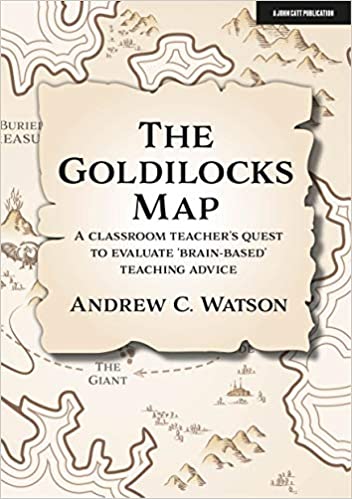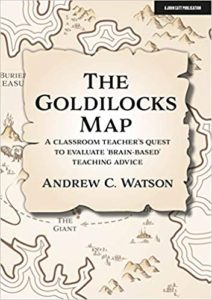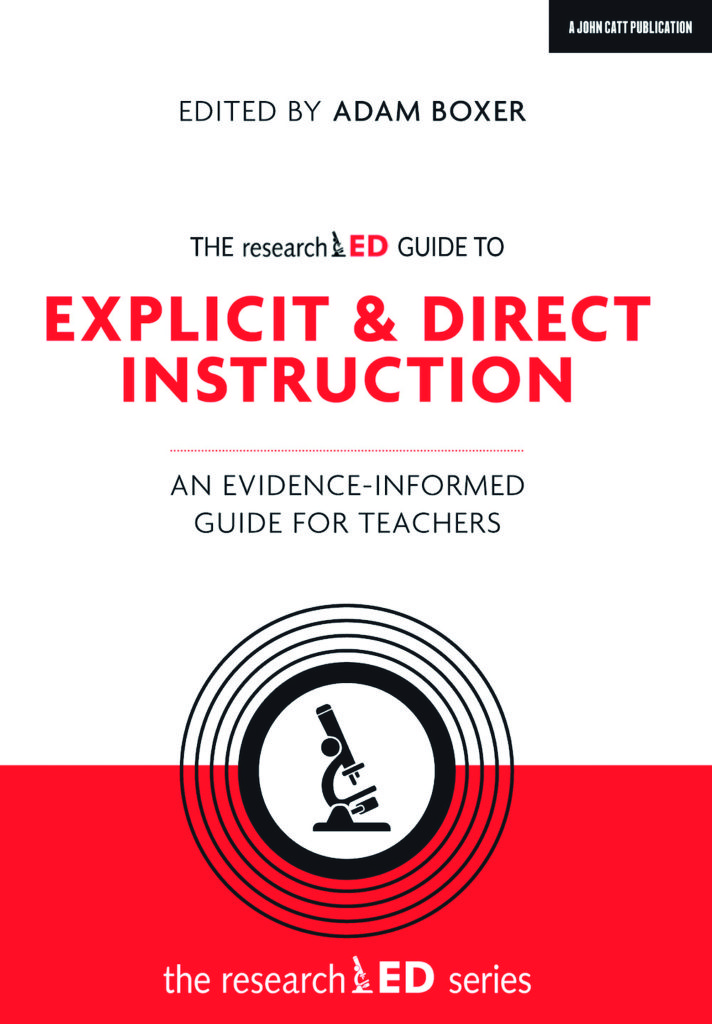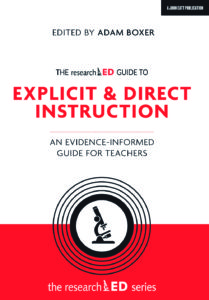Early in January, The Times (of London) quoted author Kate Silverton (on Twitter: @KateSilverton) saying:
It’s the schools that have the strictest discipline that have the highest mental health problems.
Helpfully, they include a video recording of her saying it.
In context, Silverton is saying — in effect — that schools’ strict disciplinary policies damage students’ mental health.
If she’s right, school leaders should know that!
If we run schools with strict disciplinary policies, we should at least consider changing them. Obviously, we don’t want to cause mental health problems.
But … is she right?
This specific question leads to a broader question:
When someone says “research says you should change the way you run your school!,” what should we do next?
Accept the advice? Reject it? Flip a coin?
Let me suggest three simple steps.
Step 1: Ask for Sources
This advice seems too obvious to say out loud.
OF COURSE someone reading this blog would ask for sources.
However, in my experience, we’re very hesitant to do so. It seems — I don’t know — rude, or pushy, or presumptuous.
Especially when the research comes from psychology or neuroscience, we just don’t want to seem stubborn.
But, trust me, it’s always appropriate to ask for the research.
In this case, happily, lots (and lots) of people did ask Silverton for research.
This small niche of edutwitter lit up with people asking — quite simply — “what research suggests that strict school discipline damages mental health?” (To be clear, it also lit up with people praising Silverton for speaking out.)
Even more happily, she responded by citing 11 research studies.
Her transparency allows us to ask a second question:
Step 2: Does the Research, in fact, Support the Claim?
Here again, the question seems to obvious to raise. Who would cite research that doesn’t support the claim they make?
I’m here to tell you: it happens all the time. (I wrote about a recent example here.)
In this case, teacher/researcher/blogger Greg Ashman looked at those sources. (You can read the article he wrote here, although you might have to subscribe to his substack to do so.)
So, does the research support the claim?
Amazingly, most of the cited studies don’t focus on students’ mental health.
That’s right. To support the claim that “strict discipline harms mental health,” Silverton cites very little research about mental health. (Ashman has the details.)
Yes, we might make some guesses based on these studies. But, guesses aren’t research.
As Ashman writes:
it’s easy to accept that suspension and [expulsion] are associated with higher rates of depression without assuming suspension and [expulsion] are the cause.
So, DOES strict school discipline cause mental health problems? I don’t (yet) know of direct research on the subject.
This specific example about school discipline, I hope, emphasizes the broader point:
Simply by a) asking for research and b) giving it a quick skim, we can better decisions about accepting or rejecting “research-based” teaching advice.
Step 3: Actively Seek Out Contradictory Information
Because humans are so complicated, psychology and neuroscience research ALWAYS produces a range of findings.
Even with something as well-supported as retrieval practice, we can find a few studies suggesting limitations — even (very rare) negative effects.
I thought of this truth when I saw a New York Times headline: Cash Aid to Poor Mothers Increases Brain Activity in Babies, Study Finds.
This blog is about brain research, not politics. At the same time, this brain research might be cited to support a policy proposal.
So: what should we do when we see brain research used this way?
Step 1: “Ask for sources.” Good news! The sources are quoted in the article.
Step 2: “Does the research, in fact, support the claim?”
Sure enough, the researchers conclude
“we provide evidence that giving monthly unconditional cash transfers to mothers experiencing poverty in the first year of their children’s lives may change infant brain activity.”
Step 3: “Actively seek out contradictory information.”
Because this claim made the front page of the Times, I kept an eye out for responses, both pro and con.
Just a few days later, I found this tweet thread. In it, Dr. Stuart Richie points out some real concerns with the study.
For instance: the authors “pre-registered” their study. That is, they said “we’re going to measure variables X, Y, and Z to see if we find significant results.”
As it turns out, they found (small-ish) significant results in P, Q, and R, but not X, Y, and Z.
As Richie notes, P, Q, and R are certainly interesting. But:
This is a clear example of hype; taking results that were mainly null and making them into a huge, policy-relevant story. [The research] is a lot more uncertain than this [Times article implies].
To be very clear: I’m not arguing for or against a policy proposal.
I am arguing that when someone says “brain science shows!,” we should ask questions before make big changes.
TL;DR
When people cite brain research to encourage you to teach differently…
… ask for sources,
… confirm they support the recommendation,
… seek out contradictory points of view.
Our students benefit when we follow those three simple steps.














